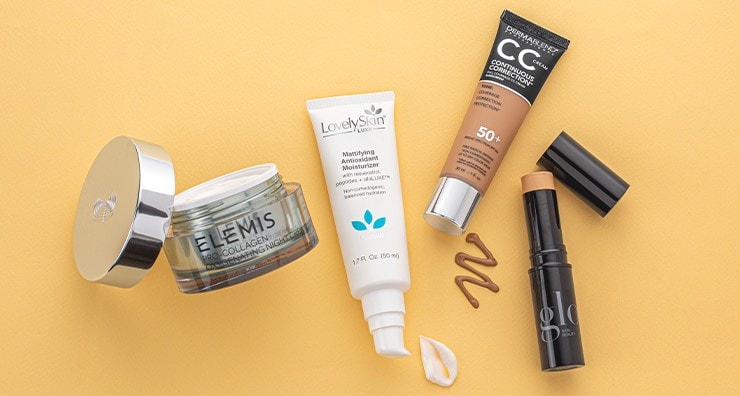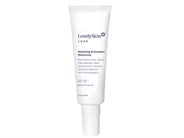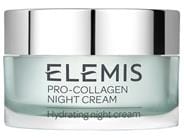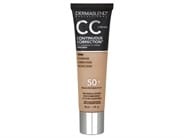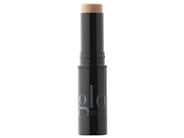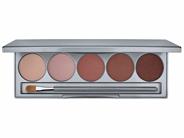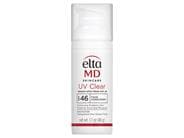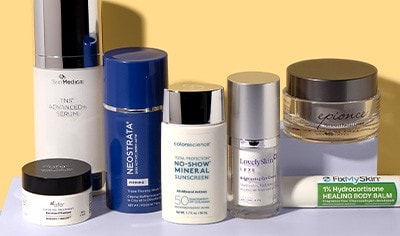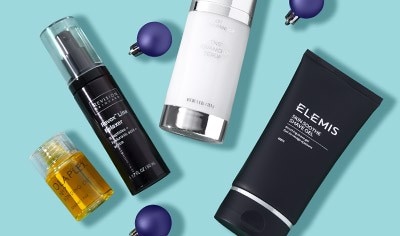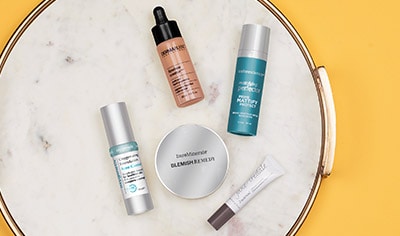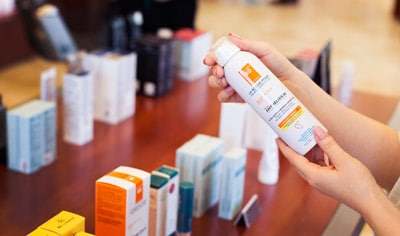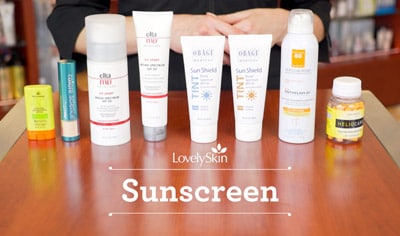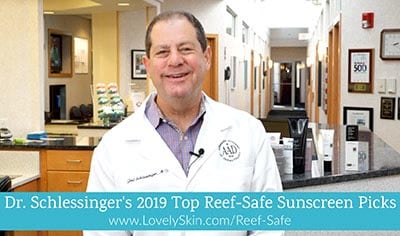Whether you’re scanning labels on skin care or checking out new makeup options, chances are you’ve run across the term “non-comedogenic.” Have you ever wondered what this term is and why it matters when it comes to skin care and cosmetics? Read on to find out:
When a skin care product is described as non-comedogenic, then it typically refers to the fact that it’s unlikely to clog pores. The root of the word comes from comedones, which are defined as small bumps that form when pores are clogged. A product that is comedogenic is likely to cause acne, while skin care or cosmetics that are non-comedogenic are less likely to do so.
When it comes to non-comedogenic products, the important thing is not what ingredients are in it but what ingredients are left out. In high concentrations, ingredients such as olive oil, soybean oil, coconut oil, argan oil and lanolin tend to clog pores.
Non-comedogenic is a term that skin care and cosmetics companies tend to use to label products that are potentially less likely to clog pores. However, there isn’t an industry-wide standard in place as to what that entails when it comes to skin care ingredients and formulations.
“Non-comedogenic as a term isn’t regulated by the FDA, so though it can be a good guideline to look for if you’re acne-prone, I like to remind folks that it’s not the end-all, be-all,” says board-certified dermatologist and LovelySkin CEO, Dr. Joel Schlessinger. “Acne triggers can be very personal, so what makes you break out might be completely fine for someone else.”
If acne isn’t an issue for you, then using non-comedogenic products may not be needed. “Some ingredients that tend to clog pores for acne-prone people, such as olive oil, can actually be beneficial in skin care products for others,” Dr. Schlesinger says.
Non-comedogenic products are often recommended for acne-prone skin, but they’re not to be confused with acne prevention products. “Non-comedogenic products can help prevent future breakouts because they’re less likely to clog pores. That said, they won’t have any effect on existing acne,” Dr. Schlessinger says.
To clear existing acne, our experts recommend using a cleanser and spot treatment specifically formulated with active ingredients that target acne, such as salicylic acid and benzoyl peroxide. For more acne-clearing tips, check out our blog post Skin Care Basics for Clear Skin.
If you’re prone to breakouts, it’s not necessary for everything you use to be a non-comedogenic product. However, it can be a useful consideration for products that cover a lot of skin on your face, such as sunscreen, foundation, moisturizers, and other facial treatments.
Same goes for your body. If you’re looking to get rid of body acne on your back or chest, for instance, you may want to be cautious with body lotions or creams that aren’t labeled non-comedogenic.
6 Non-comedogenic products to try
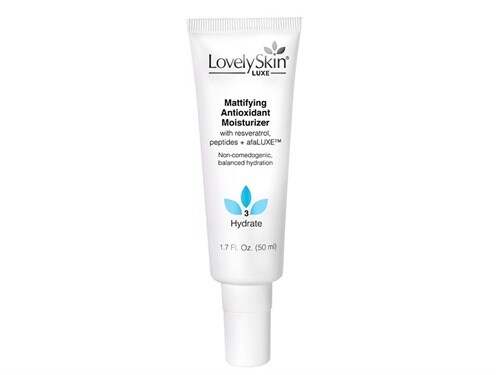
If you’re in the market for a daily moisturizer and prefer more of a matte finish, then this non-comedogenic formula could be the right fit for you! This oil-free moisturizer contains peptides to help boost the skin’s repair process and resveratrol to help protect against free radical damage. It also features afaLUXE™, a blend of vitamin C, Dead Sea minerals and a dermatologist-developed molecule that encourages collagen production while softening the skin through gentle exfoliation.
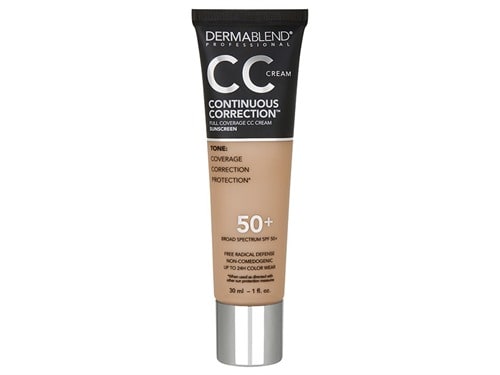
For flawless coverage and sun protection in one, check out this CC cream, which stands for “color correct.” In other words, this breathable formula provides lasting, light coverage to even out skin tone and reduce the appearance of redness and hyperpigmentation. It’s also been dermatologist-tested to be non-comedogenic and allergy-safe, so it’s well-suited for acne-prone and sensitive skin types alike.
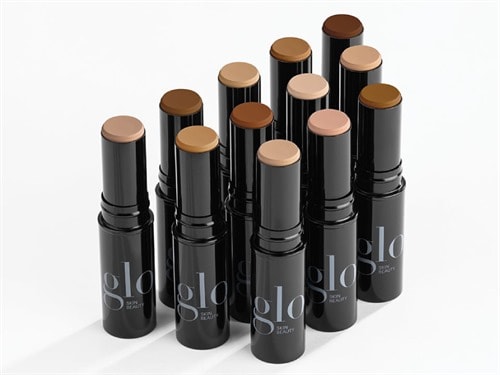
This non-comedogenic product does more than meets the eye. In addition to using it as an all-over foundation, you can also use it as a concealer, for contouring or highlighting. With a mineral-based formula and natural-looking satin finish, this foundation stick is easy to apply with a makeup brush, sponge or even just your fingers.
As a bonus, it combines hyaluronic acid to help keep skin hydrated with a blend of antioxidants (vitamins A, C and E) to protect against environmental damage.
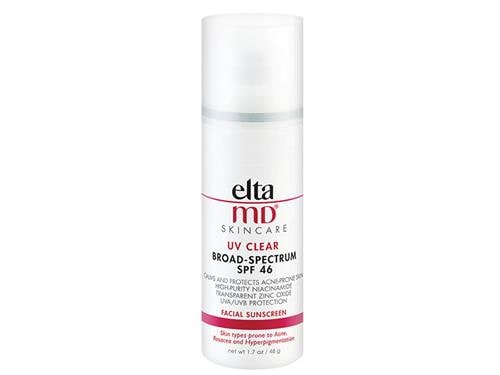
When it comes to a sunscreen recommendation for acne-prone patients, this EltaMD product is Dr. Schlessinger’s top choice. “In addition to being non-comedogenic, this sunscreen also contains 5% niacinamide, which helps keep acne-prone skin clear,” he says. It’s available in tinted and untinted formulas and also protects skin against UVA and UVB rays with a combination of transparent zinc oxide and octinoxate.
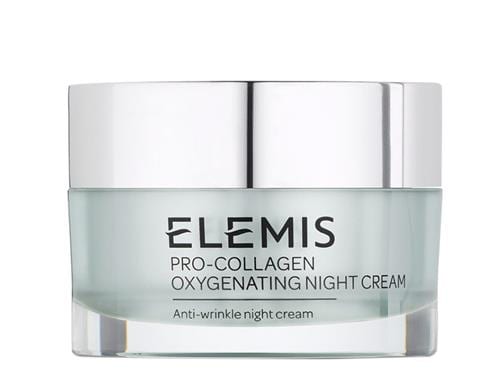
For a rich, restorative overnight treatment without pore-clogging oils, reach for this anti-aging night cream. Sesame seed oil, jojoba seed oil and avocado oil help soften skin while the power of padina pavonica extract helps increase skin firmness and elasticity. A clinical trial showed that it kept skin moisturized for up to twelve hours. For best results, it’s recommended that you apply it before bed to help keep your skin nourished all night long.
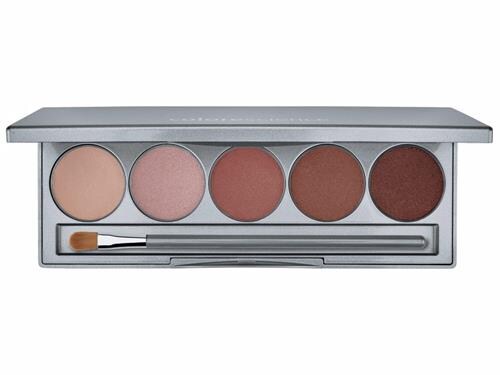
Looking for a convenient travel palette or just a great lineup of colors for your at-home makeup kit? This mineral-based palette contains a blush, bronzer, highlighter and two eyeshadows, all in one sleek compact. Because Colorescience’s entire makeup line is organic and non-comedogenic, so you can rest assured knowing that these products aren’t likely to clog pores.
Have you noticed blackheads on your nose or chin? Find out how to tell whether they’re blackheads or sebaceous filaments instead.


